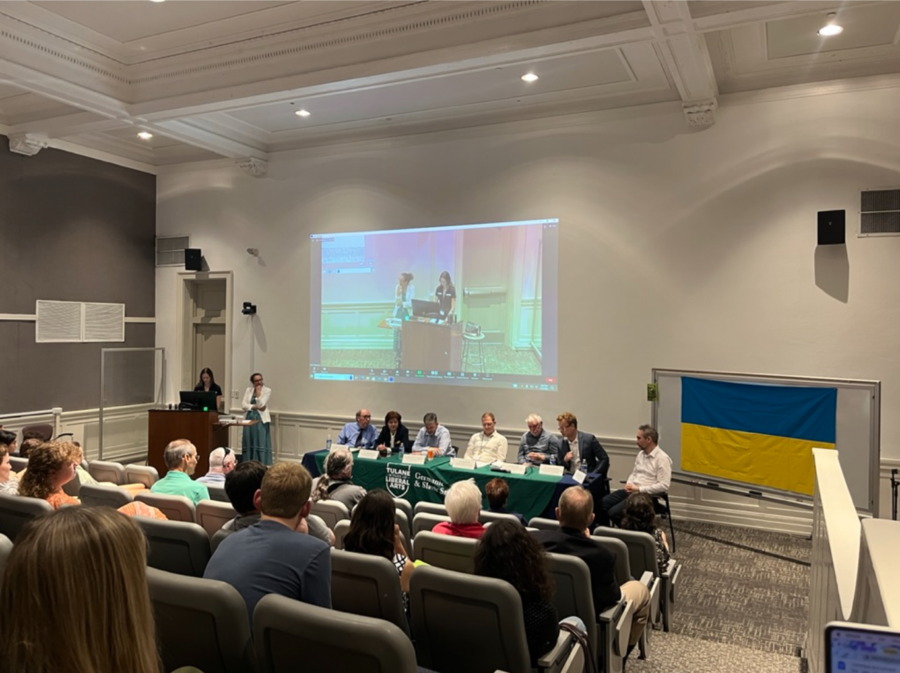German and Slavic department hosts panel on Ukraine invasion anniversary
March 1, 2023

Tulane University’s German and Slavic Studies department organized a panel discussion on Feb. 24 to reflect on the one year anniversary of Russia’s invasion of Ukraine.
Several professors with backgrounds in foreign policy, international relations, finance, physics, history and political science discussed the current war and its implications.
Alla Rosca, associate expert of the Foreign Policy Association of Moldova, said education around media and the war is very important.
“Media literacy…must be introduced everywhere,” Rosca said. “Everyone should be aware to not let themselves to be manipulated, to be tricked with different types of propaganda.”
Professor of International Relations Christopher Fettweis discussed why war happens, what it means for international security and how it may end.
“This war is going to end with territorial concessions on part of the Ukrainians” Fettweis said. “That’s not good, we’re not going to be happy about it. And it’s going to take a while for the Ukrainians to get there.”
Fettweis said that the war is so shocking because it is a 19th-century war happening in the 21st century.
“The main fact about 21st-century international politics is that war is exceptionally rare compared to any other time in history,” Fettweis said. “I don’t think it’s going to usher in a whole new era. I think, in fact, instead, we’re going to look back on this as … the last round of the Cold War.”
Fettweis believes there is a peaceful future in sight.
“I think we’re going to, after it’s over, go back to what had been and will continue to be a relatively peaceful era,” Fettweis said.
Zakhar Popovych, PhD Candidate in Physics and Ukrainian, spoke about his experiences with the war.
“War will take you by surprise, even if you’re kind of expecting it,” Popovych said.
He remembered the day before the war, going to a gas station amid the deep quiet of the city. Hours later, Ukrainians fled the country west, towards Poland and Romania.
“I hope that this lesson will be not only [a] lesson for Ukraine, but [a] lesson for everybody,” Popovych said.






















Leave a Comment